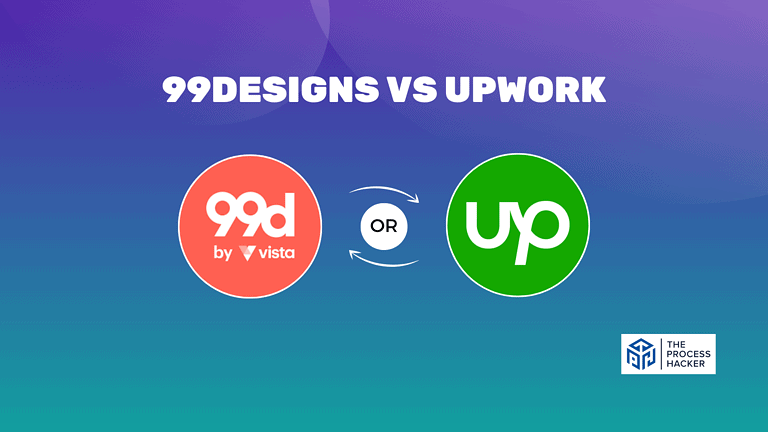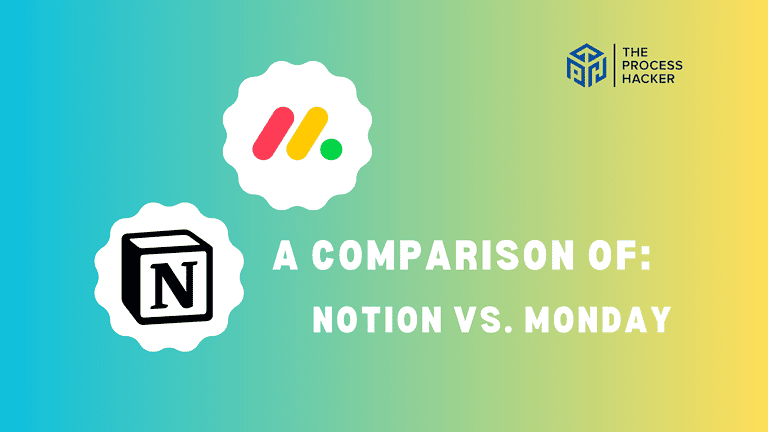How to Find Commercial Space for Rent: Advice for Small Businesses
So, you’re finally ready to take the plunge and move your business out of your basement and into a real, live office space. Congratulations! This is a huge step for any entrepreneur. But now comes the tricky part: finding the perfect commercial space for rent.
Did you know that the average commercial lease is 3-5 years long? That’s a significant commitment, so getting it right the first time is crucial.
It can feel like navigating a minefield of confusing jargon, hidden costs, and less-than-ideal locations. Where do you even begin? Don’t worry, we’re here to help.
In this guide, we’ll cover everything you need to know to find the perfect commercial space for your new business from understanding different lease types to negotiating the best sale, we’ve got you covered.
Ready to find your dream space? Let’s dive in!
What are Commercial Spaces for Rent?
“Commercial space” is a pretty broad term. Essentially, it refers to any property used for business purposes rather than residential ones. Think offices, retail properties, restaurants, warehouses – anywhere you can conduct business.
Living in an age of open doors of opportunity, where ideas inspire young business people to promote innovation and startups. Start-up companies at a particular stage of development come out of their home “garages” and need a workspace where ideas can be turned into reality.
Today, the U.S. real estate market has different types of commercial leases in large central metropolitan areas and quiet provincial regions. We have created a Guide to finding functional and comfortable spaces that, if chosen correctly, have the prospect of becoming the head offices of a promising new generation of companies.
But here’s the thing: not all commercial spaces are created equal. They come in all shapes and sizes, with different features, amenities, and price tags. Look closely at some common commercial spaces you might encounter in your search.
What are the Different Types of Commercial Spaces Available?
Today’s commercial real estate leasing market is no longer as conservative as it was a decade ago. Startup businesses have a choice among several basic types of space leases offering different terms and conditions:
Traditional Office Lease
More established businesses and companies with significant set-up capital consider classic long-term rent contracts. Such start-ups need stability and suitable conditions for permanent cooperation. The same applies to industrial companies. Renovations and equipment installation are costly, and a company will only agree to these conditions with full guarantees of a commercial building lease.
Co-working Spaces
The first steps in providing information services are best in organized and comfortable co-working spaces. Renting such workplaces is affordable for almost any entrepreneur, with the lessor providing all office equipment. Centers are usually located in convenient central districts of cities, which is most useful for aspiring entrepreneurs.
Technoparks and Business Incubators
When startups join innovation incubators, they receive premises and equipped workplaces for the team. Multifunctional complexes may have specific focus areas, such as scientific, technological, and production. At the same time, renting space in incubators is not just a payment per square meter but a contract for participation in a complex environment of developing technologies.
Why You Should Know How to Find Commercial Space
Finding the right commercial space can make or break your business—seriously. It’s not just about having a place to set up shop; it’s about finding a location that supports your growth, reflects your brand, and helps you attract customers and talent.
Think of your commercial space as more than just four walls. It’s a strategic asset that can influence:
- Your Brand Image: A polished office in a prime location can boost your credibility and make a strong impression on clients.
- Employee Morale and Productivity: A well-designed, functional workspace can attract top talent and keep your team happy and productive.
- Operational Efficiency: The proper layout and location can streamline your operations and improve your workflow.
- Customer Accessibility: A convenient location with good visibility and accessibility can attract more customers.
Finding a suitable commercial space is an investment in your business’s future. It’s about setting yourself up for success from the get-go. So, let’s equip you with the knowledge you need to find the perfect space for your unique needs.
How to Find Commercial Space for Rent
Now that you understand the importance of finding a suitable commercial space, let’s get down to the nitty-gritty of seeing one. It’s more involved than simply searching online and picking the first space that catches your eye.
You need a strategic approach to ensure you land in a location that sets you up for success. This involves understanding your needs, exploring options, and negotiating favorable terms.
Step 1: Define Your Commercial Space Needs
Before browsing listings, you need a crystal-clear picture of what you’re looking for. This means analyzing your business requirements and translating them into specific spatial needs.
Consider these key factors:
- Location, location, location! Think about where your ideal customers are located. Do you need to be in a bustling downtown area, a quiet suburban neighborhood, or perhaps an industrial park? Consider factors like accessibility, visibility, and proximity to public transportation.
- Size matters. How much space do you need? Consider your team size, anticipated growth, and any equipment or inventory you need to store. Remember to factor in common areas like meeting rooms, break rooms, and restrooms.
- Layout and functionality. What kind of layout will best support your workflow? Do you need an open floor plan, private offices, or a mix? Think about how you want your space to function and how it can enhance collaboration and productivity.
- Budget. Be realistic about what you can afford. Factor in the rent and additional costs like utilities, maintenance, and insurance. A clear budget will help you narrow your options and avoid overspending.
- Amenities and features. What are your must-haves? Do you need high-speed internet, ample parking, or specific building features like loading docks or elevators? Make a list of essential amenities and prioritize them.
By carefully defining your needs upfront, you’ll be able to streamline your search and focus on spaces that truly align with your business goals.
Step 2: Set Your Budget and Understand Costs
Before you start touring trendy lofts or sleek storefronts, you need to get real about your finances. Setting a clear budget is like drawing a map for your search – it keeps you on track and helps you avoid overspending. Here’s what to consider when crunching the numbers:
- Rent: This one’s a no-brainer, but remember to account for potential rent hikes.
- Security Deposit: Landlords want to protect their property, so expect to deposit a security deposit.
- Utilities: Will you be footing the bill for electricity, water, gas, and internet?
- Maintenance: Who’s responsible for fixing that leaky faucet or patching the wall? Get clear on maintenance responsibilities.
- Insurance: Protecting your business and the commercial property itself is crucial. Factor insurance costs into your budget.
- Build-out Costs: Do you need to knock down a wall or install custom lighting? Those renovations add up, so include them in your budget.
Once you understand your budget, you can zero in on spaces that fit your financial picture. Remember, finding a space that works with your budget is a win for your business in the long run.
Step 3: Research the Commercial Real Estate Market
Now that you have your budget, it’s time to dive into the exciting world of commercial real estate!
But before you start browsing listings, getting a feel for the market in your desired area is crucial. Think of it as scoping out the playing field. Are rental rates on the rise or holding steady? What types of commercial properties are in high demand? Are there any upcoming developments or zoning changes that could impact your business?
By researching market trends, vacancy rates, and average rental prices, you’ll gain valuable insights that will inform your decision-making. This knowledge will empower you to negotiate effectively and secure the best possible deal for your business.
Feel free to tap into local resources like commercial real estate brokers, online property databases, and industry publications to gather the information you need. The more you know, the better equipped you’ll be to make informed choices.
Step 4: Leverage Online Platforms and Tools
In today’s digital age, finding commercial space is easier than ever, thanks to a wealth of online platforms and tools at your fingertips. Think of these resources as your digital real estate agents, working tirelessly to connect you with your dream business space.
Websites like LoopNet, CoStar, and CommercialCafe offer extensive databases of available office properties, complete with photos, floor plans, and property details. You can filter your search by location, size, price, and property type to quickly narrow your options.
Many platforms also offer virtual tours, allowing you to explore spaces from the comfort of your own home. Don’t forget about local resources! Many cities and regions have dedicated websites or online directories that list available commercial spaces.
By taking advantage of these online platforms and tools, you can streamline your search and discover hidden gems you might otherwise miss.
Step 5: Work with a Commercial Real Estate Agent
While online platforms are great for initial browsing, consider teaming up with a commercial real estate agent for expert guidance. Think of them as your seasoned navigators in the sometimes complex world of commercial real estate.
These professionals bring a wealth of knowledge and experience, offering valuable insights into market trends, property values, and lease negotiations. A good agent will take the time to understand your business needs and preferences, helping you identify suitable properties that align with your vision. They can also provide access to exclusive listings and connect you with other professionals, such as attorneys and contractors.
Plus, they’ll handle the nitty-gritty details of negotiations and paperwork, freeing you to focus on running your business. A commercial real estate agent can be invaluable if you’re overwhelmed by the search process.
Step 6: Tour and Evaluate Potential Spaces
Alright, time to step out from behind the screen and explore some spaces in person! Think of this as the “try before you buy” stage. Schedule visits to the properties that have piqued your interest and approach each tour with a critical eye. Don’t just picture your business there – feel it. Walk through the space, envision your daily operations, and consider how the layout and flow would impact your team and customers. Pay close attention to the details:
- Natural Light: Is the space bright and airy, or does it feel dim and closed off?
- Accessibility: Is the space easily accessible for employees and customers with disabilities?
- Parking: Is there ample parking for both employees and customers?
- Signage: Are there opportunities for prominent signage to attract foot traffic?
- Infrastructure: Are the electrical, plumbing, and HVAC systems in good condition?
Take notes, snap photos, and don’t hesitate to ask questions. This is your chance to gather crucial information and assess whether a space truly aligns with your needs and vision. Trust your gut – if something doesn’t feel right, move on. The perfect space is out there waiting for you!
Step 7: Negotiate and Secure Your Commercial Space
You’ve found “the one” – the space that makes your entrepreneurial heart sing! It’s time to put on your negotiation hat and secure the best possible deal. This is where your preparation and research pay off.
Remember that budget you meticulously crafted? It’s your guiding star in these negotiations. Be clear about your needs and expectations, and be flexible and willing to compromise. Don’t be afraid to ask for concessions or propose alternative solutions. Here are some key areas to consider during negotiations:
- Rent: Can you negotiate a lower monthly rent or secure a rent-free period?
- Lease Term: Does a shorter or longer lease term better suit your business needs?
- Tenant Improvements: Can the landlord contribute to any necessary build-out costs?
- Renewal Options: Do you have the option to renew the lease at a predetermined rate?
Remember, a lease is a legally binding agreement, so carefully review every clause and seek professional advice if needed. Once you’ve reached an agreement, celebrate! You’re officially on your way to establishing your business in its new home.
Key Considerations for Successfully Finding Commercial Space for Rent
Finding the right commercial space is a significant milestone for any business, but it’s not just about finding a place to hang your shingle. It’s about securing a location that aligns with your vision, supports your growth, and enhances your brand. To help you navigate this crucial decision, let’s explore key considerations that can make all the difference in your search.
Navigating the Commercial Real Estate Landscape
The commercial real estate market is constantly evolving. Factors like economic conditions, interest rates, and changing workplace trends are shaping the landscape, making staying informed more important than ever. Here’s what you need to know:
Hybrid Work Models
Many businesses are reevaluating their space needs as remote work becomes increasingly common. Consider whether a smaller footprint or flexible workspace arrangement suits your team better.
Increased Competition
You may encounter increased competition for prime commercial spaces depending on your location and industry. Be prepared to act decisively when you find a space that meets your needs.
Sustainability
Eco-conscious practices are becoming increasingly important to businesses and consumers alike. Look for spaces with energy-efficient features and sustainable building practices.
Technological Advancements
Smart buildings with integrated technology are gaining popularity. Consider whether features like automated lighting, HVAC, and security systems would benefit your business.
By understanding the current market dynamics and trends, you can position yourself for success and make informed decisions that support your long-term goals.
Legal and Regulatory Aspects of Commercial Leasing
Leasing commercial space involves more than finding the perfect location and shaking hands. It’s crucial to understand the legal and regulatory complexities that come with signing a commercial lease. Think of it as the fine print that protects you and the landlord. Here are some key areas to pay close attention to:
Lease Agreements
A commercial lease is a legally binding contract, so reading and understanding every clause is essential. Pay attention to details like lease duration, rent escalations, permitted use of the space, and responsibilities for maintenance and repairs.
Zoning Regulations
Ensure the property’s zoning designation aligns with your business activities. Operating a retail store in a space zoned for industrial use could lead to legal complications.
Building Codes and ADA Compliance
The property must comply with all applicable building codes and accessibility standards under the Americans with Disabilities Act (ADA). This ensures the safety and accessibility of your employees and customers.
Environmental Regulations
Be aware of any environmental regulations affecting the property, especially if your business handles hazardous materials.
Insurance Requirements
Your lease will require you to maintain certain types of insurance coverage, such as liability insurance and property insurance. Feel free to seek legal counsel to review your lease agreement and ensure you understand your rights and obligations.
Technology’s Role in Commercial Space Selection
Technology is revolutionizing how we find and secure commercial spaces, offering powerful tools to streamline the process and make smarter decisions. Think of it as having a high-tech assistant by your side, guiding you every step of the way. Here’s how technology is transforming the commercial real estate landscape:
AI and Data Analytics for Market Analysis
Forget sifting through endless spreadsheets. AI-powered platforms can analyze vast amounts of market data to identify trends, predict rental rates, and pinpoint promising locations for your business. This data-driven approach empowers you to make informed decisions based on real-time insights.
Virtual and Augmented Reality in Property Tours
Need help traveling to a potential location? No problem.
Virtual and augmented reality technologies allow you to experience immersive property tours from anywhere. Explore spaces 360 degrees, visualize different layouts, and even “place” your furniture within the virtual environment to get a true sense of the space.
Smart Building Features and Their Benefits
Today’s commercial office buildings are more than just bricks and mortar. Smart building technologies offer a range of benefits, from energy efficiency and cost savings to enhanced security and improved occupant comfort. Look for automated lighting, intelligent HVAC systems, and real-time occupancy monitoring to optimize your workspace and reduce operating costs.
By embracing these technological advancements, you can gain a competitive edge in your commercial space search and secure a location perfectly suited to your business needs.
Final Thoughts on Finding Commerical Real Estate

Finding the ideal commercial space for your business requires careful planning, thorough research, and a touch of entrepreneurial spirit.
By setting a realistic budget, understanding market dynamics, leveraging online tools, and seeking expert advice, you can navigate the complexities of commercial real estate and secure a location that sets you up for success.
Remember to embrace technology, stay informed about legal and regulatory considerations, and trust your instincts. With the right approach, you’ll find a space that meets your business needs, inspires your team, and fuels your growth for years to come.







